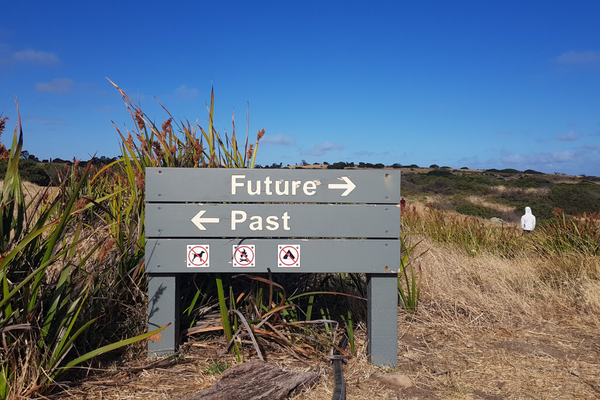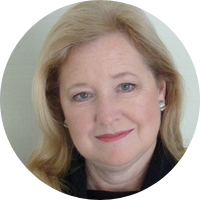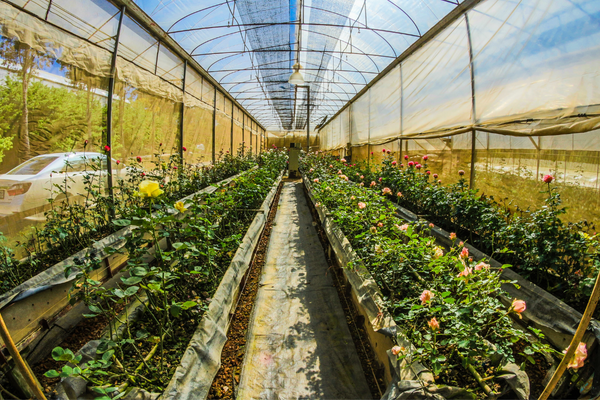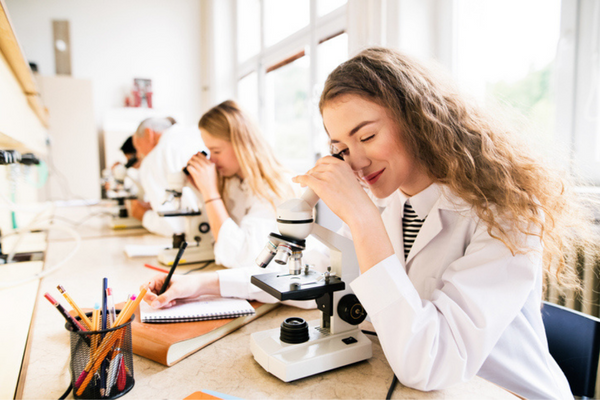
How has the work environment for female industry chemists evolved since the time you started at Dow in the early 80s?
I wish that I had a more encouraging answer to this question. While there is much less overt discrimination in the workplace today there is still too much inherent bias that is evident in the gender disparity in technical and management positions.
Over the last two decades women have received between 30-40% of all doctorates in chemistry awarded by US universities yet their representation in leadership roles in industry is far below that level. While things are better for women in the chemistry enterprise today there is still a long way to go to reach true equality of opportunity.
What are the non-technical skills that helped you most throughout your career in industry? Which ones should early career chemists focus on?
I spent many years in research management at Dow, and it became apparent that good technical skills are necessary but not sufficient for industrial chemists to succeed. I would put effective teamwork and communication at the top of the list of critical non-technical skills.
Industrial chemistry is a collaborative effort not a solo endeavor. Companies are focused on outcomes like product sales, so they usually won’t support research that is interesting, even publishable, if it doesn’t have the potential to lead to new sales.
Discovering, developing, and manufacturing new products require many different areas of expertise so chemists need to work effectively with other scientists, engineers, safety and design experts, marketing specialists and even customers in order to get a product to market. Trying to do “your piece” in isolation is counterproductive. This can be a difficult adjustment for a new graduate who has come from an academic environment where the focus is on individual achievement.
As I progressed through my career I discovered that I enjoyed working with people more than working in the lab, so I then developed my skills in leadership, management, and public speaking. These skills helped me when I moved to Washington, D.C. to work on science and technology policy for Dow.
At some point, you decided to pursue a Ph.D. What went through your mind at the time? And how does the decision look to you in retrospect?
I had the benefit of great mentoring from several chemistry professors at the University of Michigan, where I earned my bachelor’s degree. I indicated an interest in doing research, and they encouraged me to pursue a doctorate in chemistry. This took me by surprise because it seemed like an ambitious undertaking. I asked if I should just enter the graduate program at Michigan, but they suggested that I should expand my connections by looking at the opportunities in inorganic chemistry (my area of interest) offered by many of the other great research universities.
I followed their advice and decided to go to Northwestern, which had an outstanding program in inorganic chemistry. In retrospect, this was a life-changing decision that I would not have made but for the wise counsel from my professors about broadening my horizons rather than taking the easiest path. Getting a doctorate opened many doors for me at a time when few women had the opportunity to have a career in scientific research.
How would you assess the career opportunities confronting recent chemistry graduates compared to those that greeted you upon graduation from Northwestern University?
I was fortunate to graduate at a time when jobs were plentiful, and there were clearly-defined paths to finding employment in academia or industry. My colleagues who chose an academic career sought postdoctoral positions that would enhance their resumes. I decided that I wanted a career in industry, so I signed up for on-campus interviews with recruiters from the top chemical companies.
I received great coaching from my thesis advisor (Professor Duward Shriver) about how to interview and how to present a good seminar about my thesis research. The recruiting interviews led to invitations for company site visits which led to job offers. The process was clear and pretty straight forward.
Today, the situation is quite different. Jobs seem less plentiful and career paths are more numerous and varied, including many “non-traditional” options. There are many ways to approach potential employers through networking, social media, job fairs, and on-line applications in addition to the recruiting process that I went through.
It is hard to know what the job options are or which approach is most likely to pay off with a particular employer unless you can get information from friends who have recently been through the process.
You have spent countless hours volunteering for the chemistry enterprise in a number of roles. What motivates you to do so?
I am most motivated by the hope that my work will make a difference for our community. I first became engaged with science and technology policy in Washington when I was leading Dow’s Cooperative Research program. I was dismayed to see how long it took to get sponsored research programs started with university faculty, which caused frustration and missed opportunities on both sides. I soon realized that most of the delay was caused by contentious negotiations over control of intellectual property which might result from the research that Dow was paying for.
Although many of my industry colleagues told me not to waste my time on what they felt was an intractable problem, I believed that both companies and universities would be better off if this barrier to research collaboration could be lowered. This led me to take on many roles including co-chairing a project on this topic for the Government-University-Industry Roundtable in the National Academies and helping to found - and subsequently lead - the University-Industry Demonstration Project (UIDP) which is still, more than 10 years later, improving and strengthening research collaborations between companies and universities. These experiences taught me that dedicated and sustained efforts can produce progress, even on tough issues.
How did your parents influence your leadership style?
My father was a quiet person but a strong leader by example. He never shied away from difficult tasks and was always the first to take on more than his share of hard work. My mother was a very creative and articulate person and a powerful leader through inspiration. She drew on her experience to determine what was needed and then motivated others by describing her vision of what was possible. I have tried to incorporate the best of both in my own leadership style.
You were recently named an ACS Fellow. What did that mean to you?
I was very honored to receive this recognition from ACS. I have been active in ACS governance at the national level for almost 20 years, including chairing the Committee on Chemistry and Public Affairs, serving on two other committees (Corporation Associates and International Activities), chairing the Working Group on Immigration and Work Visas, and serving on the Development Advisory Board and two Presidential Taskforces. It was gratifying to know that these contributions were valued by ACS. To me, being selected as an ACS Fellow is the most meaningful way for ACS to express thanks for the work done by its many dedicated volunteers.
You have spent some time living at the Watergate in Washington, D.C. Any problems regarding break-ins that you would like to report?
There are no recent break-ins to report but there are always interesting things going on at the Watergate. I have had a home in Michigan for 40 years and an apartment in Washington for 13 years. There is quite a contrast between the two lifestyles!
At the Watergate my neighbors have included a Supreme Court justice, an opera star, several cabinet secretaries and senators, and even a few distinguished scientists. I never know who I may encounter on the elevator. My neighbors in Michigan are every bit as nice, but I don’t see them on the evening news.

Susan Butts is an active member of the science and technology policy community following her 31-year career in the chemical industry and related organizations. Currently, she is President of Susan B. Butts Consulting. Previously she served as president of the Council for Chemical Research (CCR).
Before joining CCR, she worked for The Dow Chemical Company for three decades in various positions in R&D including a stint in Washington D.C. where she worked on issues related to science policy and government funding for R&D in her role as Senior Director of External Science & Technology Programs. She is a Fellow of the American Chemical Society and of American Association for the Advancement of Science.
Susan holds a B.S. degree in chemistry from the University of Michigan and a Ph.D. in chemistry from Northwestern University.
This article has been edited for length and clarity. The opinions expressed in this article are the author's own and do not necessarily reflect the view of their employer or the American Chemical Society.
Copyright 2019 American Chemical Society (All Rights Reserved)







